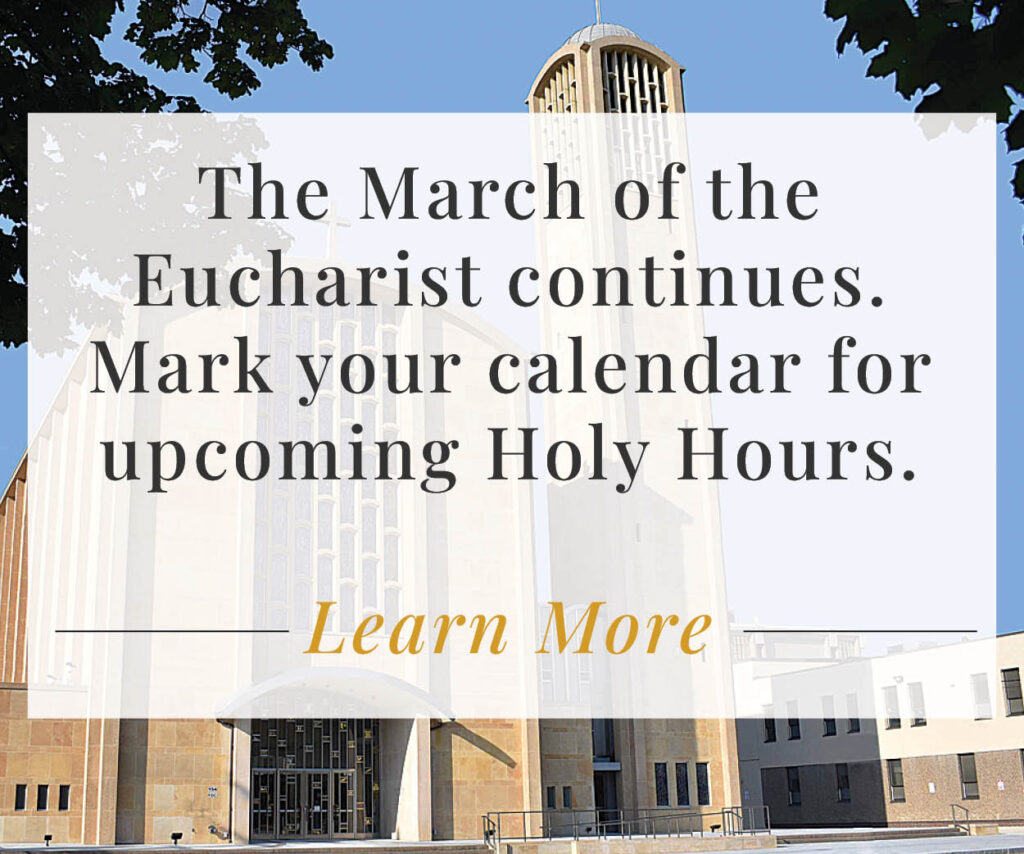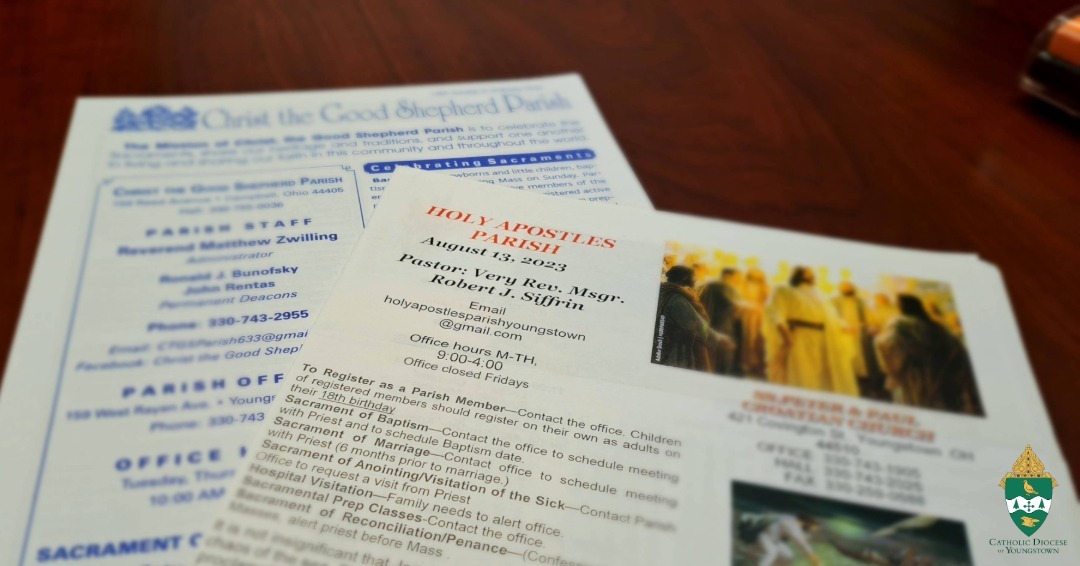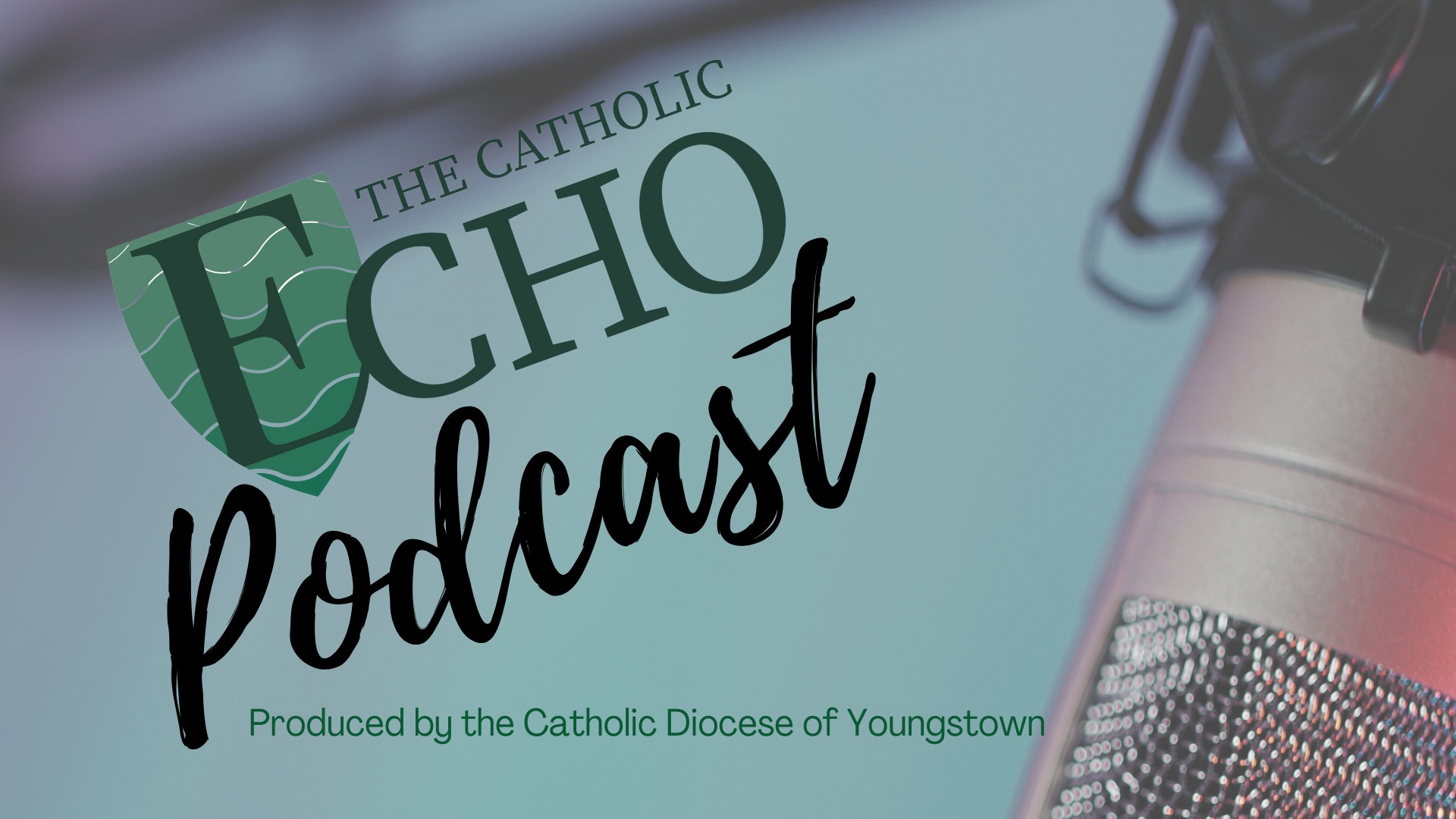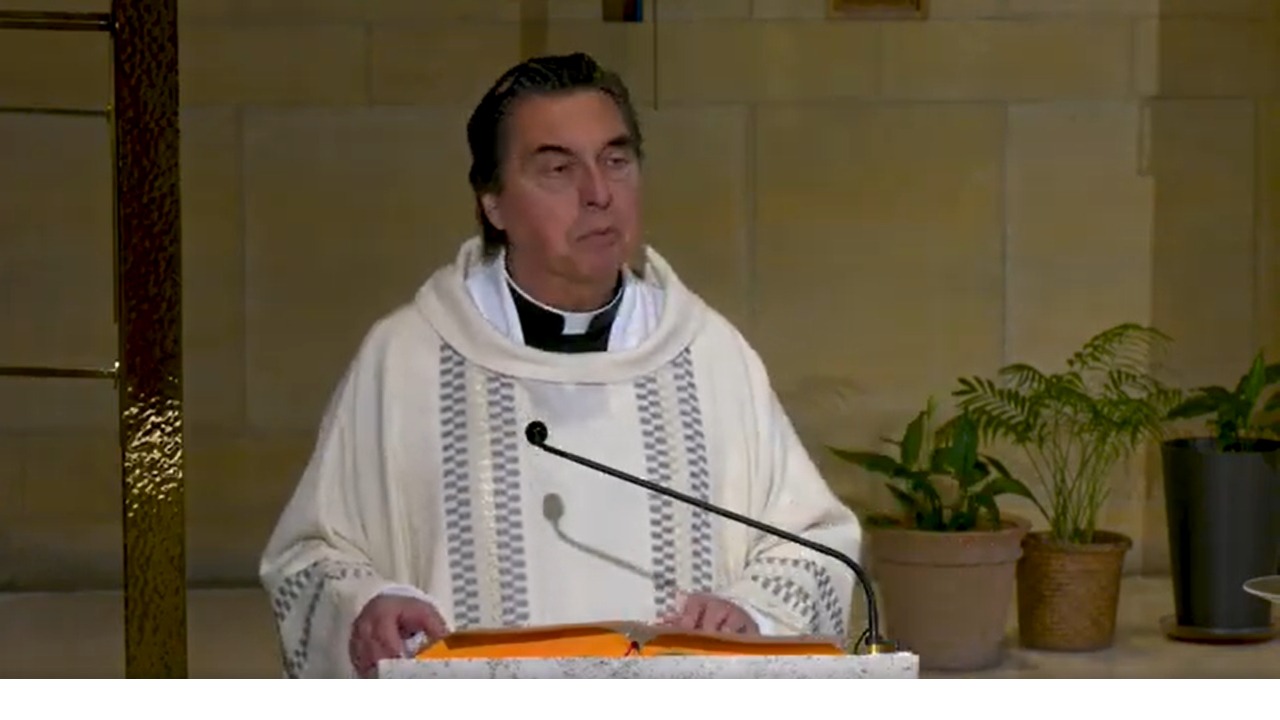
As every Catholic probably knows, it can be hard to find time in your day for God, even just a few minutes here or there. And yet we’re bombarded with distractions from every angle, from content pouring out of all those accursed screens our eyes are always glued to. I’ve often wondered if all this technology is a net positive or negative for humanity; for every amazing medical invention that saves lives, it seems like there are about a million apps designed to do nothing but kill brain cells. Am I being dramatic? Yes.
Our access to negative or destructive content might be slightly easier nowadays, but we can’t throw the baby out with the bath water. Maybe we just need to be more disciplined about the way we use our technology.
As it turns out, a lot of other people have already had this idea! There are hundreds—if not thousands—of Christian apps, websites, podcasts, etc., just waiting for you to enjoy. But where should you start?
To make it easier for you to decide, we did some digging, and came up with a list of apps that we personally* find to be the most useful, trustworthy, effective and enjoyable. If you’re going to indulge in screentime, just know you have some options that might just bring you closer to God!
Please note that some of these apps include paid content.
Hallow
“Freemium” – Free content along with paid subscription for some features
Written by Collin Vogt
Hallow got its name from one of founder Alex Jones (no, not that Alex Jones)’s lectio divina meditation sessions. Lectio divina, for those who don’t know, means ‘divine reading’ (or sacred/prayerful reading), and is a form of scriptural meditation wherein one reads from the Bible (or sometimes another religious source, like the lives or wisdom of the saints), and deeply contemplates a passage, even on a single word from the section. As Jones tells it, one of these meditations—in which he focused on the word ‘hallow’—completely changed his life.
Jones was raised Catholic but drifted away during his college years, leaning on secular meditation practices to help him with feelings of stress and anxiety. But whenever he tried to meditate, he found his thoughts turning towards Christian imagery or teachings, such as the Crucifixion. He started inquiring about whether or not there was any sort of Christian meditation and was told that the Church had actually had a form of spiritual meditation for thousands of years—prayer. Jones laughs while telling the story, but he’d never really encountered prayer despite having been raised in the faith, and it was exactly what he’d always needed.
When Jones meditated on “hallow,” it brought him to question what exactly he was doing with his life. He wondered if God was asking him to make His name holy on Earth, and whether Jones was living to serve God or to serve himself. Jones says the answers to those questions were incredibly stressful—but ultimately life-altering. From that point on, he dedicated his time to making a prayer app that he would have wanted to use, one focused on prayerful meditation and scripture. Now, Hallow is one of the most popular and well-known Christian brands in the world.
The great thing about Hallow, in my opinion, is that it’s basically become a platform unto itself for a huge variety of Christian content. While prayer and meditation form the app’s bedrock, it has grown to include everything from Bible study and sacramental education to personal journalling, scripture readings and more. It can be a bit overwhelming, but the app does it’s best to connect you with the exact tools and resources you’re looking for.
Hallow also features daily “routines:” users can set reminders for specific prayers or activities that they want to complete daily. For example, you can set a routine for daily Gospel readings at 10 a.m., then a guided meditation at 10:15 a.m., and finish the day with a rosary at 9 p.m. There’s far more ability for customization, however; as a Jesuit high school grad, I was happy to find about 20 different variations on the daily examen, including ones in different languages like Spanish and Polish. There are podcasts, reflections, and homilies from a wide variety of Catholic speakers and writers.
Perhaps the best thing about Hallow is just how premium the experience feels. This app is every bit as polished as TikTok, Duolingo or Spotify, to name a few. For example, if you get halfway through a Bible reading and return to it later, the app will ask if you’d like to resume playing from where you left off. If the meditations feel a little too quiet for you, you can add background music or nature sounds to any of the tracks.
An important note: Hallow follows a “freemium” model, which means that there are additional features available to those who pay a subscription. I did feel a bit like the app wanted me to think I had to pay for it, but I quickly realized that there was still a massive amount of content available for free users.
Another concern I had was that the app would be too “gamified”—that it would turn prayer into a sort of dopamine-releasing widget akin to Duolingo, for example. Thankfully that was not the case. The creators of the app seem to be totally devoted to advancing the spiritual lives of Christians around the world. Put differently, it is there for you to engage with on your own terms. It doesn’t incessantly pepper you with updates and notifications, cheapening your daily experience with God.
One concern that remained with me: It would be nice if the app were a little more focused, and guided you through a curated routine and taught you how to use the app, instead of just dumping a million options on your lap. Options are nice, but too many options can be frustrating, as you don’t know where to start. But hey, we live in an imperfect world, and Hallow is doing a good thing.
While navigating the overwhelming amount of content available on the app may seem intimidating, if you just give it a little time and practice (not to mention patience, of course), you’ll get the hang of it, and I truly believe that Hallow is an incredibly useful tool for cradle Catholics and new Catholics alike.
Laudate
Free
Written by Collin Vogt
Laudate was launched in 2013 by Aycka Soft, and bills itself as the “#1 Catholic App.” I’m not sure what metric they are using for that assessment, but what I can say is that Laudate is sort of like the utility belt for a practicing Catholic’s phone. It’s not fancy, but it has everything you need to maintain a fulfilling spiritual life—and it’s completely free.
The app doesn’t have any sort of intriguing interface or an artfully designed user experience—when you open the app, it just drops you on the home screen with a bunch of categories to explore like “Daily Readings & Saint of the Day”, “Rosary and Chaplet,” and “Liturgy of the Hours.” It also has the full Catechism and multiple versions of the Bible for you to read.
One of the most useful features Laudate offers is the “Confession” app, which helps you prepare for making confession by prompting you with questions about your behavior, like whether you’ve taken the Lord’s name in vain, or whether you’ve avoided stealing. It is an extremely useful resource for anyone who hasn’t been in a while!
I love this feature because the sacraments are really the heart of Catholicism, and any Catholic app should properly emphasize them as such. Laudate also collates all the most important resources in one place for easy access and use.
Click To Pray (Pope’s Worldwide Prayer Network)
Free
Written by Justin Huyck
Billed as the “Pope’s prayer app,” Click To Pray is a project of the “Pope’s Worldwide Prayer Network,” which has its origins as the “Apostleship of Prayer” in the nineteenth century. One of the most visible aspects of the Pope’s Worldwide Prayer Network is the Pope’s monthly prayer intention.
Click to Pray, itself, offers three moments of prayer during the day (morning, afternoon, and evening), along with the Pope’s monthly prayer intention. Additional urgent prayers from the Pope are also loaded, for example his recent prayers for the Holy Land in the midst of war and conflict. There is a “log in” feature which allows users to share their own prayers.
The app still seems to be in beta mode (still in testing), but is available on both Google Play and Apple iOS. It is designed in a simple but attractive style. Push notifications seem to be an option, but I could not confirm their reliability. One feature that is missing is a link in the app to the video form of the Pope’s monthly prayer intention, which is unfortunate because during Pope Francis’ pontificate these have become extremely well-produced. You can find those videos on YouTube as “The Pope Video.”
Reimagining the Examen
Free
Written by Justin Huyck
This free app from Loyola Press is based on Father Mark Thibodeaux, SJ’s book “Reimagining the Daily Examen.” The app helps introduce St. Ignatius of Loyola’s classic form of daily prayer (the Examen) to contemporary people in fresh ways. The Ignatian Examen style is distinct from an examination of conscience (for example, in preparation for sacramental confession): the Examen is an invitation to reflect on God’s presence throughout a particular day through a series of simple steps. At the heart of the Examen, as designed by St. Ignatius of Loyola, is the belief that God is present in the mundane of daily life: God is present “In All Things.”
What is remarkable about this app, and the book on which it is based, is the wide variety of tailored Examen experiences that touch on the complexities of contemporary life. When opening the app, you are greeted with prayerful instrumental music and a well-designed interface, and can immediately start “Today’s Examen.” Simply “going with the flow” of the pre-selected Examen may be a good choice to simply enter into prayer. But you can also choose from various options that may be useful for you on a particular day, ranging from the “Tradition” Examen to options like “A Relationship,” “Identifying Inner Wounds,” “Gratitude,” “I’m Drained,” “Reviewing Today’s Places, Things, and Activities,” and more!
The Ignatian Examen is a methodical way of praying through your day, taking seriously one’s emotions and real experiences, and this app is a user-friendly way of embracing this form of prayer. The app’s settings include options for text size and musical style.
Soultime
Paid Subscription
Written by Collin Vogt
Soultime, founded in 2018 by Mark Wagner, is similar to Hallow in it’s objective but differs a lot in terms of the user experience. I would say that Soultime is a much more focused experience—it seems to be smaller in scope, centered mostly on meditations and biblical verses, rather than a large library of content.
Wagner began his career in the world of finance, but was always engaged with his faith on some level. As the story goes, Wagner saw the need for an app like Soultime after developing a “therapeutic prayer ministry” for his home church, Holy Trinity Brompton, which consisted of in-person group prayer sessions. These prayer ministry sessions became so popular that people would apparently wait six months for an opening. Wagner wanted to bring that model to a broader audience of Christians, and thus, Soultime was born.
It is important here to note that Soultime is not specifically Catholic, but its presentation of Bible verses and the social elements to the app are features that Catholics may enjoy.
In addition to its smaller scope, Soultime is also much more keyed-in to educating the user on how to interact with the app. For example, when you first get into the app (after you get past the paywall, which I’ll address in a moment) there’s a button at the top of the screen that says “Start Here.” Upon pressing the button, the user is greeted by a serene voice explaining who the app is for (anyone who needs to take a moment out of their day for some self-care and to connect with God), and what you can find in its content (meditations, narrated stories, music and a fully-narrated Bible).
One of the app’s biggest features is its mood tracker. The first time you open the app, you’ll see an option to open the mood tracker, which asks you three questions: how you’re feeling with yourself, with others, and with God.
Based on your answers to these questions, the app will suggest content for you. For example, if you say you’re feeling “sad” with yourself, you will receive a curated selection of biblical passages and an appropriate meditation.
The mood tracker goes beyond your own feelings, however. The app places a big emphasis on building a tight-knit community of friends to support each other, and if you say you’re feeling particularly low in your mood tracker, it will gently nudge the friends you’ve connected with on the app to give you a call and check in with you.
However, there is no free content on Soultime—you either pay a $60 subscription fee (after a one-week trial) or you get nothing. Yet the mood tracker, support group and personal curation features are premium and intuitive, so you would need to decide if that is something you are willing to pay for.
iDisciple
Limited free content with paid “giving membership”
Written by Collin Vogt
iDisciple takes Hallow’s platform-centric approach and drops the guided meditations, focusing mainly on educational and devotional content. The app seems to be more of a facilitator between you and Christian authors and educators. While Hallow and Soultime are heavily skewed towards a sort of therapeutic approach, iDisciple is a lot more open-ended.
However, it’s still highly customizable. The first thing you’ll see when opening the app for the first time (after creating an account, that is) is a screen asking you to select some of your interests from a list of topics. For example, there are sections about parenting, marriage, money and leadership, with subcategories for each focusing on specific aspects like raising teenagers, setting a budget, etc.
Then you’re asked to select from a long list of authors that you want to see content from. Once I’d selected my interests and a few authors and content creators, I was delivered to the home screen of the app, which looks a lot like a social media feed. There’s a list of articles recommended for you based on your answers, plus updates from the authors you follow regardless of topic.
I liked this delivery format; you don’t really feel overwhelmed, and you’re not worrying about the “proper” way to use the app. You’re just sort of checking it out and seeing what resonates.
The app directs you towards two main features: devotionals and “growth plans.” Devotionals are not exactly new, but in this case, you can choose any number of devotionals to subscribe to, which will then show up on your home screen and may occasionally send a newsletter to your email inbox.
Growth plans are essentially ready-made courses on various, highly-specific subjects—but there are enough options that you’re sure to find something that will be beneficial to you. For example, there’s the “Developing a Passion for Prayer” growth plan—it’s a 14-day series of short reflections and advice and instructions from multiple writers. The first session talks about the basics of prayer and why it’s important, the second session gives a few suggestions for how to pray in such a way to deepen your relationship with God, and so on. Later sessions in the growth plan examine deeper questions in regards to prayer, like looking for ways that God answers your prayers, and how to include scripture in your prayers.
iDisciple is “free”, but it only allows you to access to three articles before locking out your access for the day and pushing you towards a $30/year “giving membership,” which includes unlimited access to content on iDisciple, as well as five free movies from Christian Cinema, a free book and more.
While there is specifically Catholic content on the app, it doesn’t have the same strong foundation of Catholic ministry as something like Hallow, and beyond that, its free content is severely limited. The educational content here is definitely useful, though, so I understand why people choose to pay for it.
*This story was written by Catholic Echo staff writer Collin Vogt, with contributions from Justin Huyck, and the opinions voiced in this story are theirs alone and are not endorsements by the Catholic Diocese of Youngstown. To find more prayer resources, the Diocese of Youngstown’s Faith Formation and Lay Ecclesial Ministry department maintains the diocesan library, catechist cafe and other resources for lifelong learning. Learn more here.












